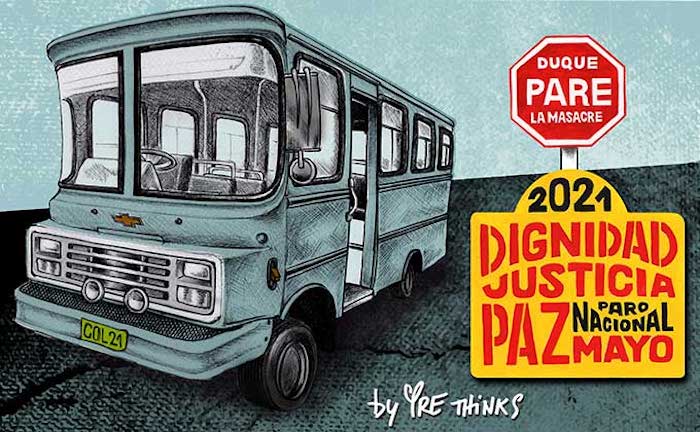- POSTED GK Alfredo Cohen Montoya

In 1993 the Colombian national football team played against Argentina and Faustino Asprilla, one of my idols, roamed the field in the cost right like a gazelle trying to sack all rivals from above all rivals and finally fell on the lawn.
“Hijueputa… Negro you had to be!” – I shouted at him then, without a of shame.
In this fourth column for EL COMEJÉN I want to talk about racism; Because with the speaker I have been doing workshops in institutes where cultural diversity is residual for more than 10 years, and therefore young people have hundreds of prejudices and stereotypes about migrants. When I am in these classes I tell you my personal story to tell that of others who, like me, have come to live in Barcelona with the intention of having a better life.
Some time ago I understood that it is impossible for these boys and girls to put on my shoes. Never, no matter how sensitive they are, no matter how hard they try, will they have the nightmares I’ve had this week. No one will feel in their flesh the feeling of having family and friends in danger, 8,000 kilometers away. I will not let them feel the frustration and sadness that invades me when I see Colombia continue to murder itself, in an endless vicious circle of hatred and destruction.
This week, the only country I suffer from at a football World Cup was struck in my face. Ayer, seeing in the cinema “The forgetfulness we will be” returned to tears. No one will be able to lay on my shoes. Not my Facebook contacts, not my Catalan friends, not my family, not my partner, not the teenagers of Sarrià.
The pain of others cannot be felt as our own, each pain is particular, inalienable, non-transferable and therefore should be respected, without judgment, without attacks. Marshall Rosenberg points out that communication, if it is empathetic, if not violent, has the ability to observe, listen, attend to the emotions of others and accompany them. Understanding emotions as answers to deep needs is the only thing that can help us empathize with others.
Understanding is not feeling, but it is better than nothing. If I don’t judge the pain of another, I can understand the anger of Sandra, an old friend of my Facebook, whose hairdresser was destroyed by young during the protests. The business I had built with effort for the last 10 years, like me. Likewise, although she is very wrong, I can understand the fear of Marcela, the bank chair who felt that what some hooded people were destroying was hers too. I worry, I grieve, it seems absurd, but with effort, I can understand that a small part of the country is afraid to lose its few or many privileges, because it also happens in less unequal societies, such as the one I live in.
But, just as I can understand Sandra and Paola, I can do it very especially with the hundreds of thousands of young people and adults who have jumped to parks, squares and streets despite Covid-19. I can perfectly understand the peasants and indigenous people who, harsh to pass hunger and receive violence for centuries, have blocked roads and torn down the statues of European colonizers.
How can I not understand that the marginalized always get tired one day? I can perfectly understand that a youth with nothing to lose is willing to take the protest to its last consequences.
However, I cannot understand that the police shoot him in the village as he cannot understand who is given that order. I cannot even imagine the pain of the mothers who have lost their children in these demonstrations and in the endless Colombian wars. Those who lose their parents are called huérfanos, those who lose their children have no numbers.
I refuse to accept that a life is worth the same as an office, a cart, a cellar, but I understand that violence is a sad way of expressing pain. The pain of Colombians is the product of endless needs unresolved by a state that has opposed the majority having opportunities to please very few.
To transform the country it will be necessary to lose fear. But not only to go out into the street to express our pain, but also to listen to that of another, to welcome it, to understand it, to understand where it comes from to try to feel it as our own, although we never achieve it. Building peace is very difficult, but building war is always worse.
Faustino “El Tino” Asprilla rose from the ground as if he had listened to me, sacked two or three Argentinians in the middle and stuck the pelota in Goycochea’s right angle. The serious thing was not that I, a 9-year-old boy, will seek affection and admiration, the painful thing is that the adults next to me will celebrate with applause and carcass, that racist and classy way of man, of little Alfred Trump.
Text originally published in EL COMEJÉN.
